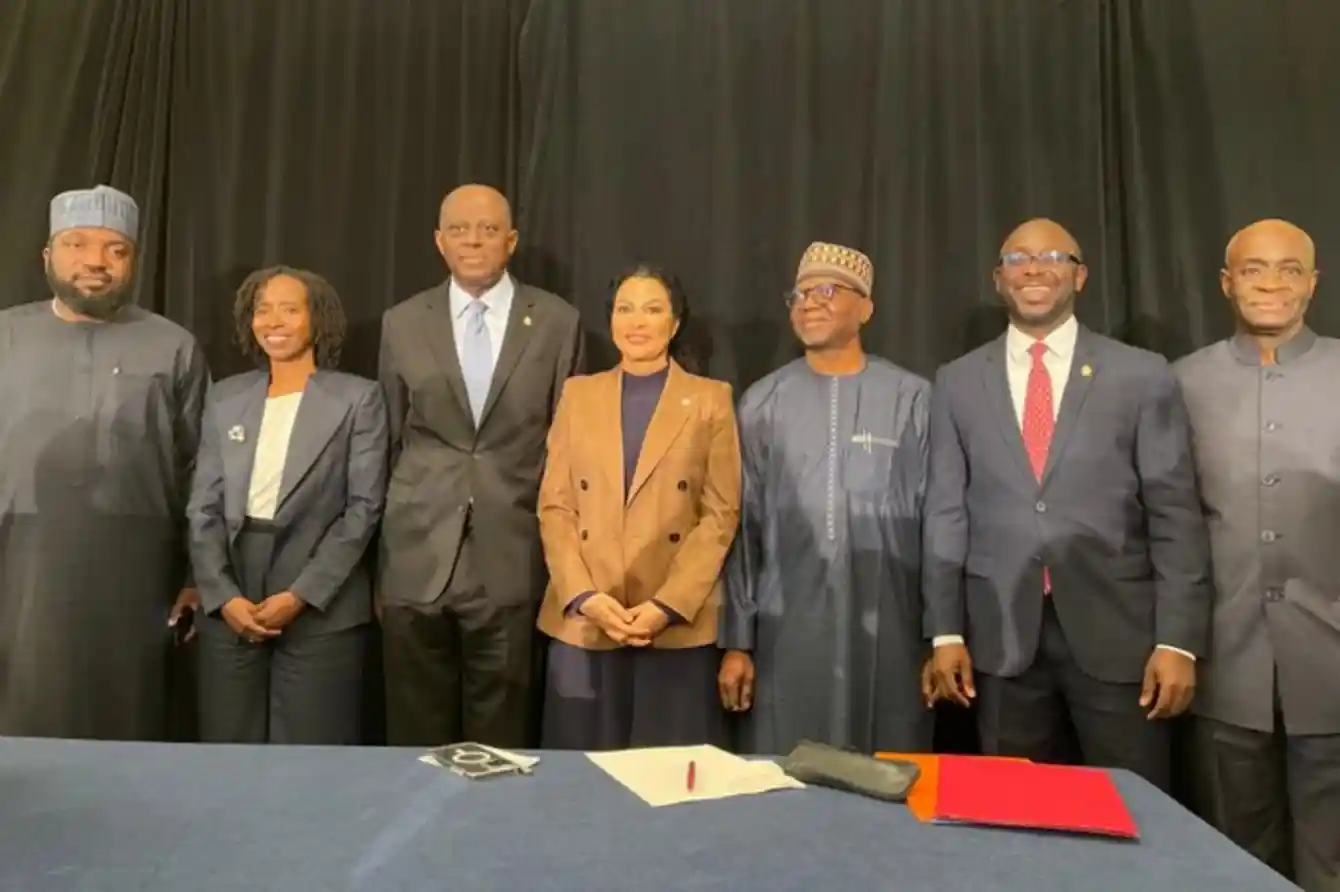A new wave of economic growth and development is taking shape in Nigeria as foreign investors continue to express confidence in the country’s ongoing reforms. At the Nigeria Investors Forum, held on the sidelines of the 2025 World Bank Group and International Monetary Fund (WBG/IMF) Annual Meetings in Washington D.C. yesterday, key government officials reassured investors of the government’s commitment to building a strong and stable economy.
The Governor of the Central Bank of Nigeria (CBN) and leader of the Nigerian delegation to the meetings, Mr. Olayemi Cardoso, assured investors that the Federal Government remains dedicated to advancing reforms and unlocking opportunities for sustainable investment and growth. According to him, Nigeria’s economic fundamentals remain strong, supported by a growing external reserve and stable macroeconomic indicators.
Mr. Cardoso highlighted that Nigeria’s external reserves have reached $43.4 billion, the highest level in five years, adding that the Central Bank and the Ministry of Finance have been working closely to ensure policy alignment and clarity for investors. “The Central Bank and the Ministry of Finance have been working hand in hand to ensure alignment, stability, and clarity for investors,” he said. He also expressed optimism about Nigeria’s economic outlook, emphasizing the government’s focus on strengthening the economy and promoting long-term growth.
The Honourable Minister of State for Finance, Dr. Doris Uzoka-Anite, was among the top officials who joined Mr. Cardoso at the event, reinforcing the commitment of President Bola Ahmed Tinubu’s administration to attract and protect foreign investment. Her participation reflected the Federal Government’s drive to create a business-friendly environment through sound fiscal policies and transparency.
Also speaking at the event, the CBN Deputy Governor, Mohammed Abdullahi, noted significant improvements in foreign exchange inflows. He said the monthly turnover in the forex market has risen by 56.4% to $8.6 billion in 2025. “Over the last two years, we’ve really focused a lot on improving FX flows into the economy, and we’ve seen a significant jump. Average net flows between January 2023 and July have doubled,” Abdullahi stated.
The Special Adviser to the President on Finance and the Economy, Sanyade Okoli, reaffirmed the government’s commitment to achieving 7% economic growth by 2027–2028 through diversification and investment in infrastructure. “Our target is 7% by 2027–2028. When the IMF increased its forecast a week later, for 2025 we are forecasting 4% growth, rising to around 5% next year,” she said.
Okoli added that 13% of sectors grew above 7% in the second quarter. “Our dependence on oil for total exports has reduced to about 57.5% in the first half of this year compared to last year, and oil now accounts for about 4% of GDP, down from 8% in 2021,” she explained.
With renewed investor confidence and continued economic reforms, Nigeria appears ready to unlock new opportunities for sustainable growth and development, positioning itself as one of Africa’s most promising investment destinations.

